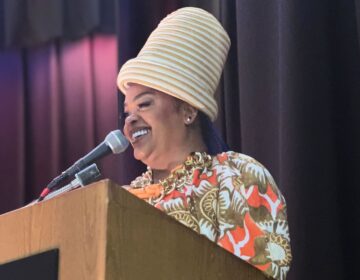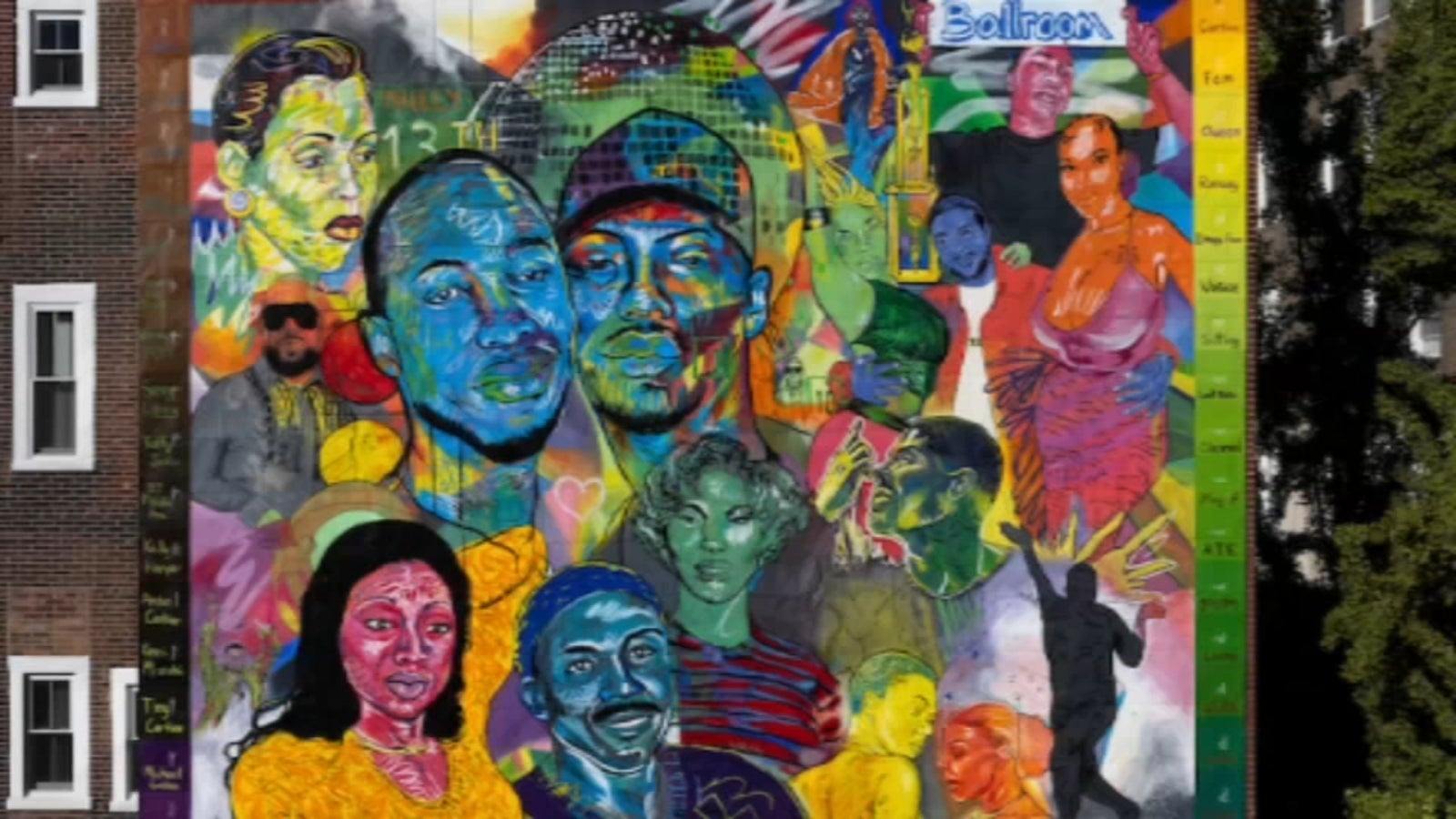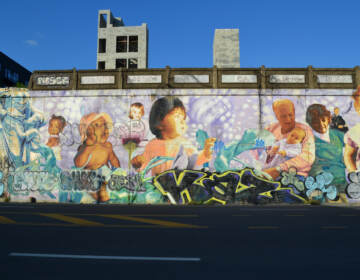City emulates Mural Arts’ ‘same-day pay’ work model after seeing big demand
Demand for the work program run by Mural Arts is greater than the slots available. Now, Philly is doubling down on the model with $300k and another pilot.
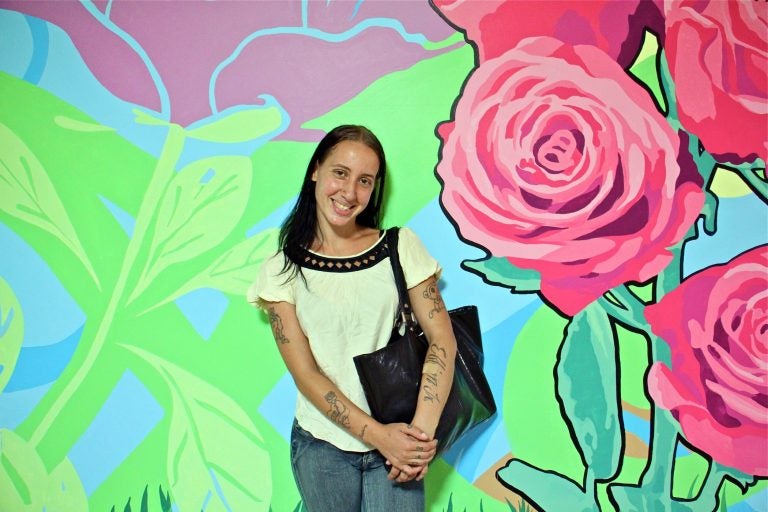
Becky Green, 27, stands in front of the mural she helped to create in SEPTA Suburban Station. (Emma Lee/WHYY)
Becky Green and her husband have not had a steady place to live since 2017.
“We sleep outside or with family and friends, depending on who will allow us to stay over,” she said.
Without a fixed address or proper documentation, Green said, she and her husband have faced barriers finding work.
Green said those barriers are not a problem with a months-old “same-day pay,” Color Me Back program in Philadelphia. Mural Arts launched it in April.
People looking for work show up at LOVE Park at 8:30 a.m. and enter a lottery for one of 10 available work spots.
If chosen, participants work three hours making public art, like a mural at Suburban Station unveiled Tuesday, and get $50 cash — much higher than minimum wage.
The program uses grants from the Barra Foundation and the Sheller Family Foundation. Mental Health Partnerships, SEPTA, the Scattergood Foundation, and the city’s Department of Behavioral Health and Intellectual disAbility Service also help support the model.
Green helped make the new 57-foot-by-7-foot mural in Suburban Station. She worked on the mural during 13 three-hour shifts.
“I did a lot of tracing, and then they just colored it in, “ she said, beaming, during the floral mural’s unveiling — the first planned over the program’s 28-month pilot.
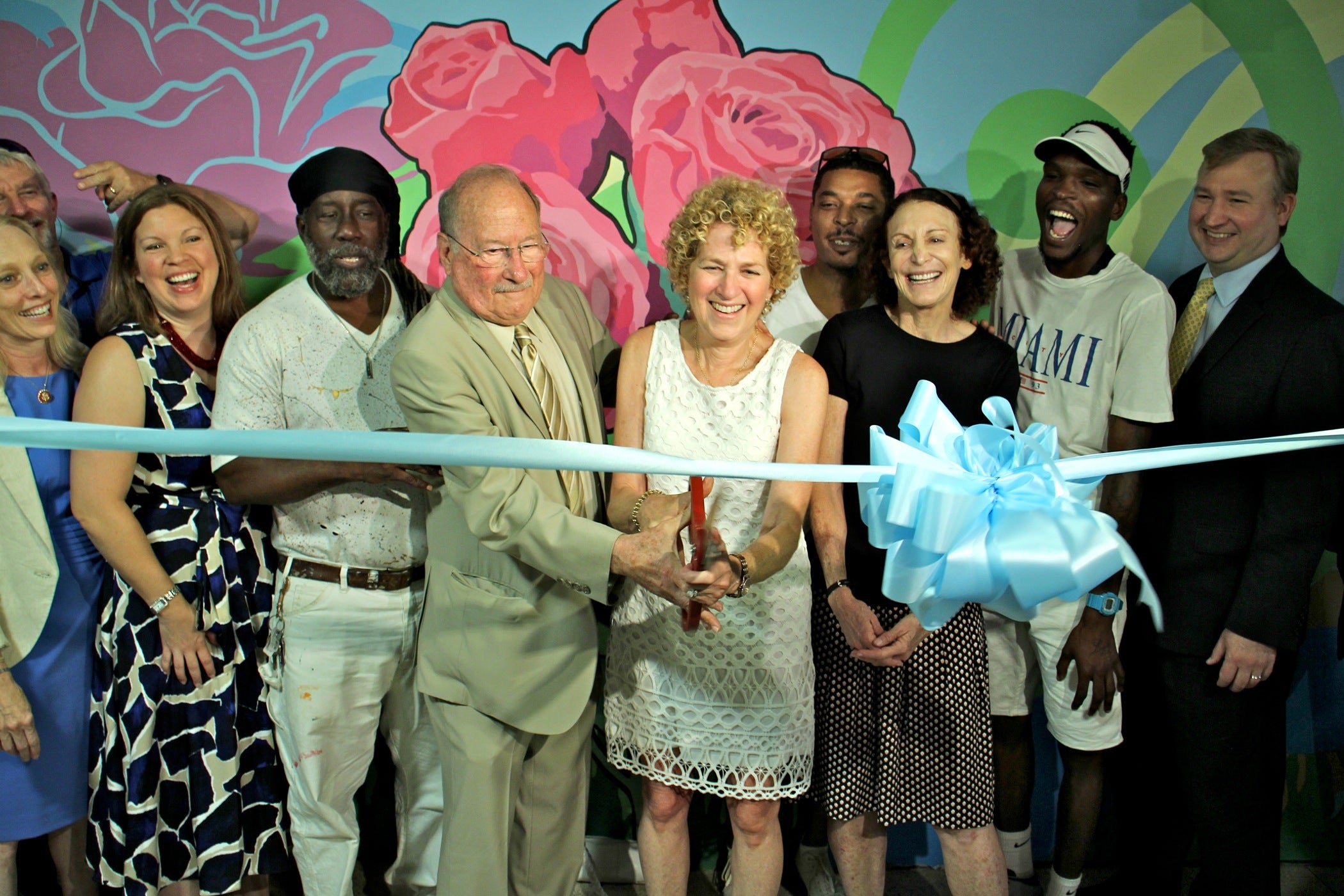
More than a payday
According to Mural Arts, the program has paid out almost $22,000 in three months to more than 430 participants.
Still, the program aims to use the opportunity to connect participants with social services.
That’s how Green and her husband were connected with First Step, a staffing agency, and were able to get some temporary work.
Participation in the program also helped Michael Belo, who experienced homelessness as recently as three years ago, gain a part-time job with Mural Arts as an assistant artist.
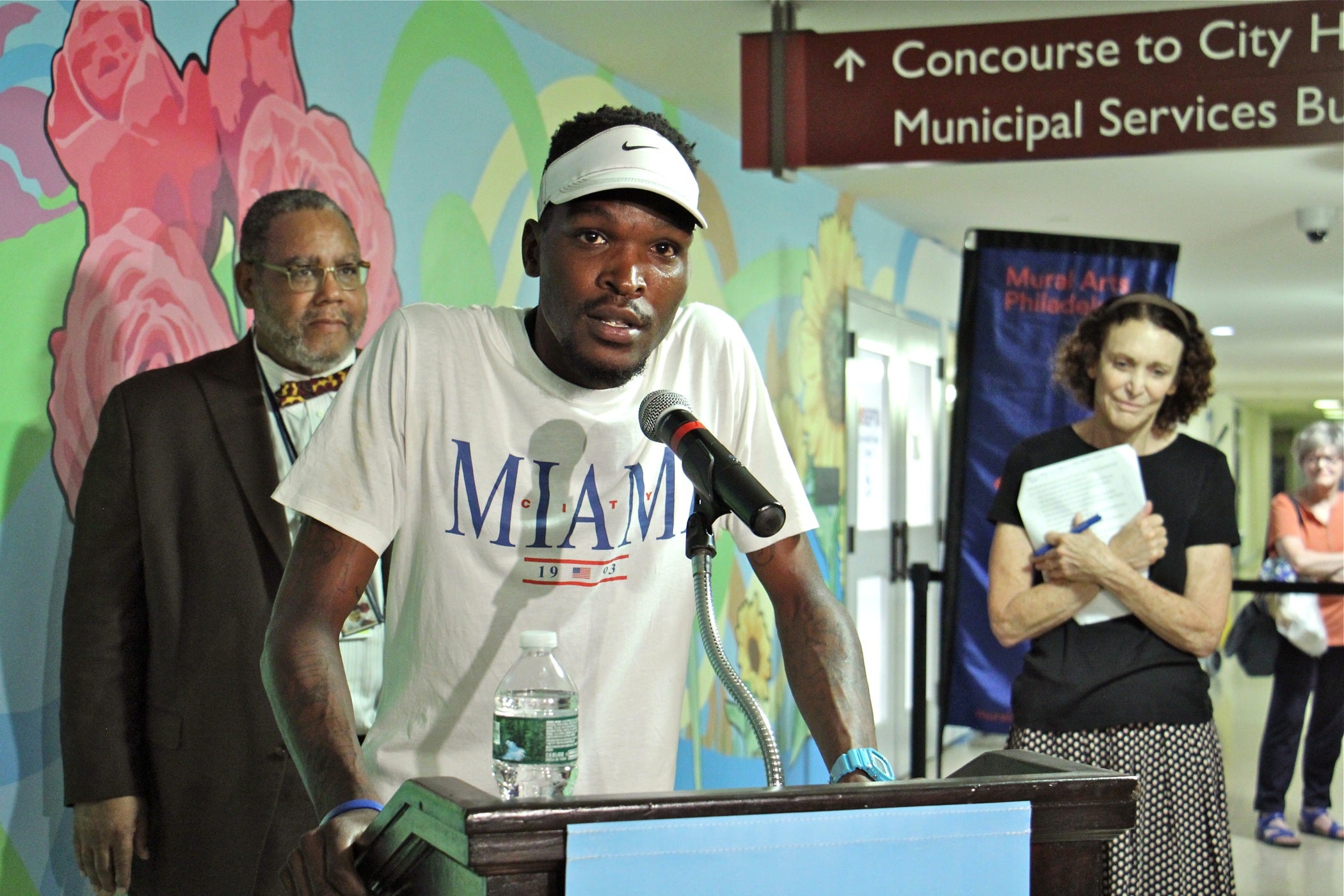
“I get to work with the same people I was standing in line with, waiting to get a ticket, and the same people I was with when I was homeless out here,” Belo said.
Demand greater than spots available
Though Green could be guaranteed a spot in the program’s early days, she now finds herself in a pool of 50 other people when trying to nab a shift.
City officials have noticed demand outstripping supply, too.
The city has carved out $300,000 from the Commerce Department, the Office of Homeless Services, and the Department of Behavioral Health and Intellectual disAbility Services to expand the model.
“[The model] makes Philadelphia more equitable and a better place, but it can’t be a better place, it can’t be equitable if it’s turning folks away,” said city Managing Director Brian Abernathy.”
Starting Monday, another 10 “same-day pay” spots will be available at the lottery for shifts with the Community Life Improvement Program, which cleans up graffiti and vacant lots.
The work will have some slightly different requirements, such as closed-toe shoes and the ability to work outside in the heat.
Liz Hersh, director of Homeless Services, said the duration of the pilot is undetermined for now. Officials still need to work out logistics and infrastructure.
“But we didn’t want to wait,” she said.” We didn’t want the perfect to be the enemy of the good.”
Though the details may take some time to sort out with the new CLIP pilot, Green said she is ready to sign up.
Disclosure: The Scattergood Foundation supports WHYY.
WHYY is your source for fact-based, in-depth journalism and information. As a nonprofit organization, we rely on financial support from readers like you. Please give today.


